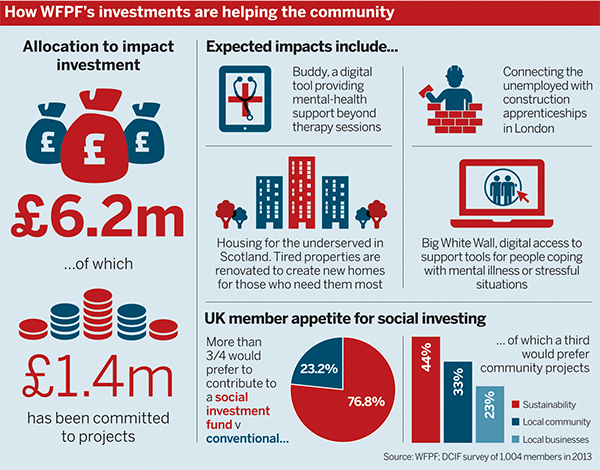Waltham Forest Pension Fund has begun drawing down its impact investment mandate into a range of projects, as pension schemes increasingly measure the social and environmental effects of their decisions.
Impact investing focuses on generating social benefits alongside financial return.
Last year, five local authority pension schemes, including Greater Manchester Pension Fund and West Yorkshire Pension Fund, launched Investing4Growth, a £250m impact fund seeking investments with “beneficial economic, social and environmental outcomes”.

Additionally, the Law Commission’s report on fiduciary duty clarified trustees could take environmental, social and governance issues into account when choosing investments, provided they believe the issues are “financially material”.
The £692m Waltham Forest scheme, which has nearly 18,000 members, last year committed £6.2m to a £20.8m impact fund in an effort to diversify its returns and support UK social capital projects.
The allocation makes up 0.2 per cent of the scheme’s overall size by assets and so far £1.4m has been drawn down into projects, which include:
• youth unemployment: helping the unemployed in London find apprenticeships with reputable construction companies;
• mental health: digital tools that bridge the gap between mental health service users and professionals, and provide support;
• social housing: affordable homes for the underserved in Scotland, via Homes for Good Investments.
Putting returns first
Returns on the investment have been -0.1 per cent for the year to March 2014. However, Gavin Rogers, media communications officer for the scheme, said this was to be expected.
Provided you aren’t sacrificing financial return to do so, it’s something that’s perfectly reasonable for investors to take into account
Nicola Ralston, PiRho
“We are not expecting returns until all committed capital has been paid up,” he said, adding the scheme expected 7 per cent net return over 10 years.
However Nicola Ralston, director at investment consultancy PiRho, said schemes should be careful not to allow the desire for a social impact overtake their need to generate returns.
She said: “Provided you aren’t sacrificing financial return to do so, it’s something that’s perfectly reasonable for investors to take into account.”
Neil Davies, associate at consultancy Barnett Waddingham, said while impact investing had received criticism that the cost of additional research could impair returns, demand is growing among schemes.
“Increasingly I’m seeing clients have a discussion about investing in a more impactful way,” he said.
Meg Brown, associate director of business development at Impax Asset Management, said impact investing originated with high net worth individuals and private banking, but was appealing increasingly to pension schemes.
“[It] makes a lot of sense to pension funds,” she said. “What they’re trying to do is apply the concept to areas where they can still get a market rate return.”
Engagement tool
There are indications socially responsible investing can help engage members with pension saving.
Research by the Defined Contribution Investment Forum in 2013 showed close to 77 per cent of 1,004 respondents would prefer to invest in a social impact fund over a conventional fund if both offered the same return.
The study also showed 35 per cent would be willing to take a 20 per cent cut to returns as a trade-off for investing in local communities.

























